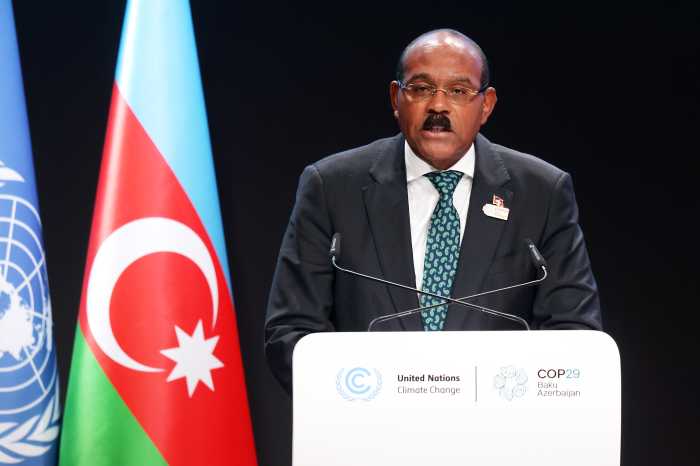St. Vincent and the Grenadines’ UN Ambassador Camillo Gonsalves has been appointed co-chair of the UN Marine Assessment Process and lead spokesman for group of states advancing Security Council reform.
Gonsalves said on May 1 that the appointment demonstrates his country’s continuing consolidation of its leadership role at the global body.
Regular process for global reporting and assessment of the state of the marine environment, including socio-economic aspects, is a UN-mandated effort to gather the relevant international experts together to produce the first ever global marine assessment of the world’s oceans and seas, including socio-economic aspects.
“The international community has recognized that local and regional marine environmental assessments have lacked the context of a global overview of the state of the oceans, and have not always assessed the full range of human activities that impact or depend on ocean resources, or changes in goods and services related to the ocean,” Gonsalves said. “The availability of data and information in different regions has also been highly variable,” he added.
The United Nations General Assembly plays an essential role in ocean governance and policy development. the international community expects the global assessment to provide decision-makers with accurate information on the state of all aspects of the marine environment, including the impact of land-based activities on the marine environment.
Gonsalves said the outcome of the regular process should help policymakers to make informed choices, respond effectively to challenges and coordinate activities for the benefit of countries sharing the marine environment.
He said the Ad Hoc Working Group recently discussed issues related to capacity-building, the format, financing and focus of the Marine Assessment, and gave direction to the experts working on the assessment document.
The assessment document is expected to be up to 750 pages long and contain the input of as many as 2,000 experts in their respective fields, Gonsalves said, adding that experts from Barbados, The Bahamas, Trinidad and Tobago and Jamaica are already participating in the process.
In addressing the opening of the week-long meeting, Gonsalves said that the importance of this ssessment cannot be overstated in the Caribbean and in most other regions.
“My region’s ties to the ocean and marine environment are cultural, economic and existential,” he said. “Our fisherfolk, our coastal residents, our tourism industry, our commercial traffic, our traditional ways of life and our very identity are intrinsically intertwined with our marine environment,” he added.
“Our future development, and our role as stewards of this precious resource, is dependent on sound data and improved capacity to utilize that data in an efficacious manner,” he continued. “These issues, to varying degrees and priorities, are common concerns of all member states, and our common goal of a healthy and productive marine environment.”
Gonsalves co-chairs the Ad Hoc Working Group with João Madureira of Portugal. They jointly preside over a 15-member bureau, which includes representatives of Ghana, Kenya, Tanzania, China, Korea, Sri Lanka, Bulgaria, Estonia, Ukraine, Argentina, Chile, Ecuador, Greece, Spain and the United States of America.


























